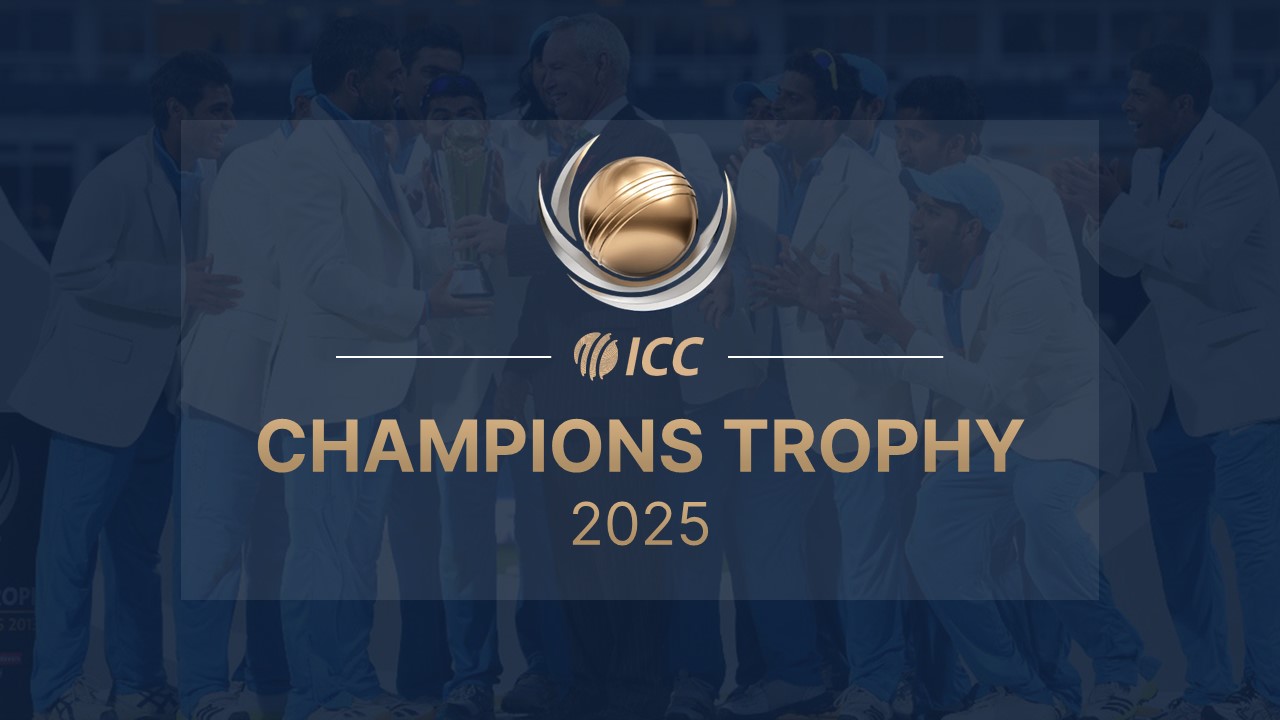India’s anticipated participation in the ICC Champions Trophy 2025 has become the center of a heated debate. With Pakistan as the host nation, the question of Team India traveling to their neighbouring country has stirred political and sporting circles alike. The Indian Ministry of External Affairs has provided a definitive answer, shedding light on the issue and addressing concerns raised by the cricketing community.
Indian Government Blocks Pakistan Visit for Champions Trophy
The BCCI has informed the ICC that Team India will not travel to Pakistan for the Champions Trophy due to safety concerns. They explained that the Indian government has refused to allow the team to play in Pakistan.
Backing this decision, Ministry of External Affairs spokesperson Randhir Jaiswal said, “The BCCI has raised security issues about Pakistan, so it’s highly unlikely the team will go.” This firm stance has created challenges for the ICC and PCB, as they now need to figure out alternative plans for the tournament.
A 29-Year Wait for Pakistan Ends in Uncertainty
Scheduled from February 19 to March 9, 2025, the ICC Champions Trophy is set to mark Pakistan’s first major ICC-hosted event since the 1996 World Cup. However, India’s refusal to participate on Pakistani soil has cast a shadow over the event’s execution. To complicate matters, Pakistan has outrightly rejected the idea of a “hybrid model” for hosting the tournament, a format that would have allowed India’s matches to be played in a neutral venue while other games proceeded in Pakistan.
On Friday, an ICC board meeting intended to address these challenges was postponed by a day, signaling the gravity of the situation. Both boards face the daunting task of balancing security concerns, logistical feasibility, and cricketing fairness in their deliberations.
Pakistan’s Options: Hybrid Model or Host Shift?
With India adamant about not traveling to Pakistan, the PCB has limited options to salvage the tournament. The hybrid model remains a plausible solution, where India’s games would take place in a neutral location while the rest of the tournament occurs in Pakistan. Despite its practicality, the PCB has remained firm in opposing this arrangement, citing concerns about undermining its hosting rights and national pride.
The ICC’s stance on this matter will be crucial. If Pakistan continues to resist the hybrid model, reports suggest that the ICC might strip the nation of its hosting rights altogether. This development would mark a significant setback for Pakistan, which has been eager to reestablish itself as a viable host for international cricket after years of isolation due to security issues.
PCB Chairman’s Firm Stand
PCB Chairman Mohsin Naqvi has publicly expressed confidence that the ICC will take a decision favoring Pakistan. Speaking to local media, Naqvi remarked, “We will do what’s best for Pakistan cricket.” Reacting to India’s decision, he asserted, “It’s unacceptable for India to refuse to visit Pakistan while expecting us to travel there.” His strong words underline the growing tension between the two boards and highlight the geopolitical undercurrents influencing the situation.
Rajeev Shukla Reiterates India’s Position
Adding to the discussion, BCCI Vice President Rajeev Shukla clarified India’s stance during a media interaction. He noted, “Discussions with the PCB are ongoing, and the ICC is making its efforts. However, our position is crystal clear: we will adhere to whatever decision the government takes.” His statement reinforces the alignment between the BCCI and the Indian government on prioritizing safety and national security.
What Lies Ahead for the ICC Champions Trophy 2025?
The ICC now finds itself in a precarious position. Stripping Pakistan of hosting rights could alienate one of its key member nations, while insisting on Pakistan hosting the event in its entirety risks losing India’s participation, which would have a significant financial impact. Reports indicate that ICC officials are exploring all possible solutions to ensure the tournament’s success without compromising on security or fairness.
If Pakistan persists with its opposition to the hybrid model, the ICC may be forced to consider relocating the tournament to a neutral venue. This would not only resolve India’s security concerns but also ensure that all participating nations, including Pakistan, can compete on equal footing.

The Bigger Picture: Cricket Amid Geopolitics
The Champions Trophy saga is yet another reminder of how sports and geopolitics often intertwine. India and Pakistan, two cricket-crazy nations, have not played a bilateral series since 2012, with encounters restricted to ICC tournaments due to strained diplomatic relations. The latest standoff underscores the challenges of organizing multi-nation tournaments in politically charged environments.
Key Takeaways
1. India’s Security Concerns: The Indian government has firmly denied clearance for the team to travel to Pakistan, citing safety issues.
2. Hybrid Model Debate: While the hybrid model offers a practical solution, Pakistan’s rejection of this proposal complicates matters.
3. ICC’s Dilemma: The ICC must strike a balance between respecting Pakistan’s hosting rights and accommodating India’s legitimate concerns.
4. Potential Host Shift: If a resolution isn’t reached, the ICC might consider relocating the tournament to a neutral venue.
5. Geopolitical Implications: The standoff highlights the ongoing complexities of India-Pakistan relations and their impact on international cricket.
As the clock ticks closer to the Champions Trophy 2025, all eyes are on the ICC’s next move. Will cricketing diplomacy prevail, or will the tournament become another casualty of strained geopolitics? One thing is certain: the coming months will define the future of one of cricket’s most anticipated events.
To get more Sports news, click here – Like















